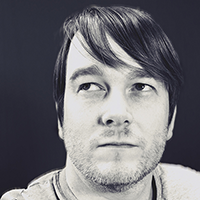Discovering the missing piece to your why
Having a why is vital to help you find the missing piece to the puzzle. Here's my revelation to showcase this.

I recorded this article in a longer form which you can watch on my YouTube channel: https://www.youtube.com/watch?v=kAjLmpTmBz0
Having a ‘why’ is an extremely valuable thing. It’s the North Star of which you can focus your ideas and energies. It aligns with your ‘just cause’—the mission that you’re trying to solve.
By having a ‘why’ you will often find that you start to scan for new ideas and directions that can be a missing piece to the puzzle. This has happened to me recently.
I was reading the book Hacking the Unconscious by Rory Sutherland. He is an ad man, and if you’ve ever seen the hit TV series Mad Men, you would think of him as the Don Draper. He knows the behaviour people will take when they see an ad.
In the book, he mentions that a lot of his work involves collaborating with behavioural scientists. These are the people who understand the psychology of people and economics to understand why they behave under certain circumstances.
They aren’t as interested in what an individual would do, but more of what large groups of people will do on average. What can nudge them to take a specific action. That could be to buy a product, or to donate to a charity. There are many uses for this at the society level.
It was at this moment I realised this was one of the missing pieces to a puzzle I had been pondering for a while. How do I ‘nudge’ people to take action and use my products? How do I teach this nudge theory to my audience so they can succeed at their own just causes.
My long term why is to inspire a generation of Thinkers and Doers. I do this by teaching knowledge management and building my own note-taking app. That’s the ‘thinker’ part. But how do I help people become ‘doers’? How do I help them take action, inspire other people and make the world a better place? That’s where behavioural science could come in. It could help me understand how to help the next generation to create positive change.
What I have done is found a piece to my long term puzzle. It’s now an area that I can explore in more detail and see how it can be used.
That’s the value of having a ‘why’. You don’t know how to get where you want to go, but by having a why, you get to scan for pieces of the puzzle that just feel like they fit.
I like to think of this as leaning into the direction you want to go, and let the path reveal itself. Today, the path has opened up, and that is the field of behavioural science.
Today’s ‘ah-ha’ moment is don’t worry about how you’re going to get where you want to go. Just know the direction and scan for things that might reveal themselves as a missing piece to the puzzle. Without a why, it would pass you by and you would be none the wiser.

